The “German Annual Tax Act 2018” was passed by the Bundesrat on 23 Nov 2018. The following changes apply to VAT: Recording obligations and liability for electronic marketplaces are introduced. The law regulates, for the very first time, the taxation of vouchers…
The “German Annual Tax Act 2018” was passed by the Bundesrat on 23 Nov 2018. The following changes apply to VAT: Recording obligations and liability for electronic marketplaces are introduced. The law regulates, for the very first time, the taxation of vouchers. The definition of taxable amount is adapted to the VAT Directive. Finally, the Act contains three simplifications for electronic services, as well as for telecommunications and broadcasting services
- Introduction
On 8 Nov 2018, the Bundestag approved the “Act on the Avoidance of VAT Losses in Trade with Goods on the Internet and on the Amendment of Further Tax Regulations” (originally called the “Annual Tax Act 2018”). On 23 Nov 2018, the Bundesrat also adopted the law, without amendment. The law has therefore been passed. In the following, we explain how the Act will function to change the German VAT Act as of 1 Jan 2019.
- Liability and Recording Obligations for Electronic Marketplaces
No significant changes were made in the course of the legislative process, regarding records electronic marketplaces must retain as of 1 Jan 2019 and when they are liable for sales made by third parties via their platform. Comment: It is questionable how operators will adapt the rules of their electronic marketplaces in order to comply with the new law. Distance sellers may need to adapt their business processes in order to ensure their compliance. In any case, distance sellers should apply for a confirmation of registration as soon as possible. It is unclear whether marketplaces will require an original confirmation from their sellers. Therefore, if possible, distance sellers should request a separate confirmation for each marketplace they use.
- Taxation of Vouchers
The German legislator has adopted these provisions almost verbatim. Therefore, there are no special features that deviate from the VAT Directive.
Comment: In practice, this must be taken into account: The law does not regulate the taxation of discount vouchers or the consequences of vouchers not being redeemed. Unfortunately, there will be no future European-wide uniform treatment in this area.
- Adjustment Definition of Taxable Amount
The “Annual Tax Act 2018” adapts the concept of remuneration in sec 10 para 1 sentence 2 of the German VAT Act to the definition in Art 73 of the VAT Directive. So far, sec 10 para 1 sentence 2 German VAT Act focuses on what the recipient spends in order to receive the supply. On the other hand, according to Art 73 of the VAT Directive, the decisive factor is what the supplier ultimately receives.
Comment: The legislator has assumed that the change has no practical effect. In fact, in a few cases, the different definitions have led to different taxation, e.g. in the case of multi-level sales of multi-purpose vouchers. The voucher holder will usually have paid a different amount for the voucher than the amount the voucher issuer received from the middleman for the voucher.
- Electronic, Telephone and Broadcasting Services Part 1 | Registration Threshold
As of 1 Jan 2019, services within the meaning of sec 3a para 5 of the German VAT Act will only be taxed at the place where the customer is resident, if these sales exceeded EUR 10,000 in the previous or current calendar year.
Comment: This is a simplification rule for microentrepreneurs. Due to the very low threshold, it should only be applicable, in practice, in exceptional cases.
- Electronic, Telephone and Broadcasting Services Part 2 | Invoicing Requirements
Anyone providing services, within the meaning of sec 3a para 5 of the German VAT Act, previously had to check whether they were required to issue invoices to customers in the respective EU Member State. This is not the case in Germany. In future, the service provider will be able to issue invoices in accordance with the regulations of his country of residence. For non-EU companies, the rules of the state, in which they have registered for the VOES procedure, apply. However, this only applies if the entrepreneur reports his turnover via the MOSS or the VOES procedure.
Comment: The provision is a real relief. Companies can now set up a uniform EU-wide invoicing process. Previously, invoices had to take into account the national specificities of the individual EU Member States.
- Electronic, Telephone and Broadcasting Services Part 3 | Extension of VOES Procedure
Until now, companies from non-EU countries could not register for either the VOES or the MOSS procedure, if they were already registered in an EU Member State for VAT purposes. In future, the VOES procedure will be open to them for services pursuant to sec 3a para 5 of the German VAT Act.
Comment: This change provides further relief. Those companies concerned should now apply for a VOES registration.
The above information was kindly provided by Küffner Maunz Langer Zugmaier, Germany. If you need any further information you can contact Matthias Luther, email to: [email protected].

